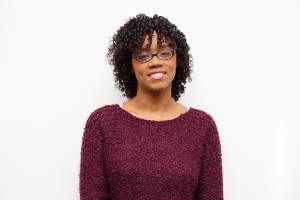I remember what it’s like to be normal. I remember sleeping in on school-less holidays. I remember spending my  excess time with friends, and having boundless amounts of energy to waste on the most frivolous of things. I remember freely consuming potassium-packed foods and salty stuff galore, without the fear of becoming violently ill. I remember spending hours and hours reading and drawing, knowing that there would always be more time tomorrow. I remember spending weekends and vacations traveling near and far whenever I got the chance. Today, that all seems so distant.
excess time with friends, and having boundless amounts of energy to waste on the most frivolous of things. I remember freely consuming potassium-packed foods and salty stuff galore, without the fear of becoming violently ill. I remember spending hours and hours reading and drawing, knowing that there would always be more time tomorrow. I remember spending weekends and vacations traveling near and far whenever I got the chance. Today, that all seems so distant.
As I write this, I have to cautiously avoid moving my left arm too rigorously to keep from ripping out the inch-long needles. Every half an hour, my right arm’s circulation is momentarily cut off by an inflating blood pressure cuff. The dialysis machine continuously emits a rhythmic hiss, beep, click, beep. There are admirable attempts to mask the hospital white with child-friendly decals strewn about the room, however, the smell of blood, vinegar, and rubbing alcohol are unavoidable to any unaccustomed nostrils. The necessary fifteen hours a week I spend at Boston Children’s Hospital ensure my relative health, but unfortunately, I never feel quite right after my treatments. It’s a feeling that can only be described as “dry” to the nurses or “after dialysis” to my acquaintances who don’t understand hospital lingo. Since sixth grade, this has been my new normal.
My world-changing diagnosis of end-stage kidney failure — or in technical terms, Membranoproliferative Glomerulonephritis — is what prompted this drastic change during my relatively short life. Summed up in that mess of medical terminology is a contract that I was genetically destined to sign, which includes, but isn’t limited to, the following terms and conditions: years of peritoneal and hemodialysis; a failed kidney transplant; frequent nausea and headaches; and mysterious pains and aches.
Despite the rough road I’ve endured, my story isn’t a sad one. I’ve had the opportunity — dare I say, privilege — to see the world in a drastically different light than my peers. Thanks to my diagnosis, I’m a stronger, more resilient person who truly understands what it’s like to hurt and struggle. Appreciating every little thing from home cooked meals to drives around my hometown of Boston now comes naturally, and I am gifted with the ability to stop trivial matters from bothering me. Even though my illness has limited my ability to accept amazing opportunities like invitations to travel abroad, what has been life threatening to me has also, in a way, saved me. It has turned me into a voice for the voiceless, a courageous fighter who has advocated for my fellow patients through pageantry, and a “WishChild” who tells a powerful story on stage at Make-A-Wish galas.
Living without my beloved bean-shaped organs is a challenge, but not a roadblock. I find that the following quote applies to my life: “The same water that softens a potato hardens an egg.” Although being chronically ill drains large portions of my time, I have become a bolder, more empathetic person as a result. My diagnosis opened my eyes to a huge invisible community of chronically ill children, some of whom don’t share my view that our predicament is a blessing, not a curse. I plan to be an example for those just like me. I plan to prove that a life-changing diagnosis doesn’t have to hinder you. Those of us who are afflicted by them still have the potential to be just as fabulous and successful as the rest of the world. Going to college will be my next step.
-Written by Bottom Line Access Student, Isis
no comment untill now